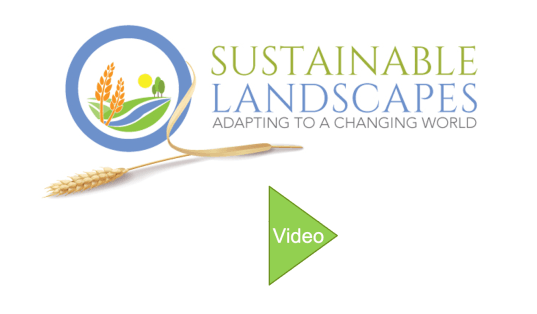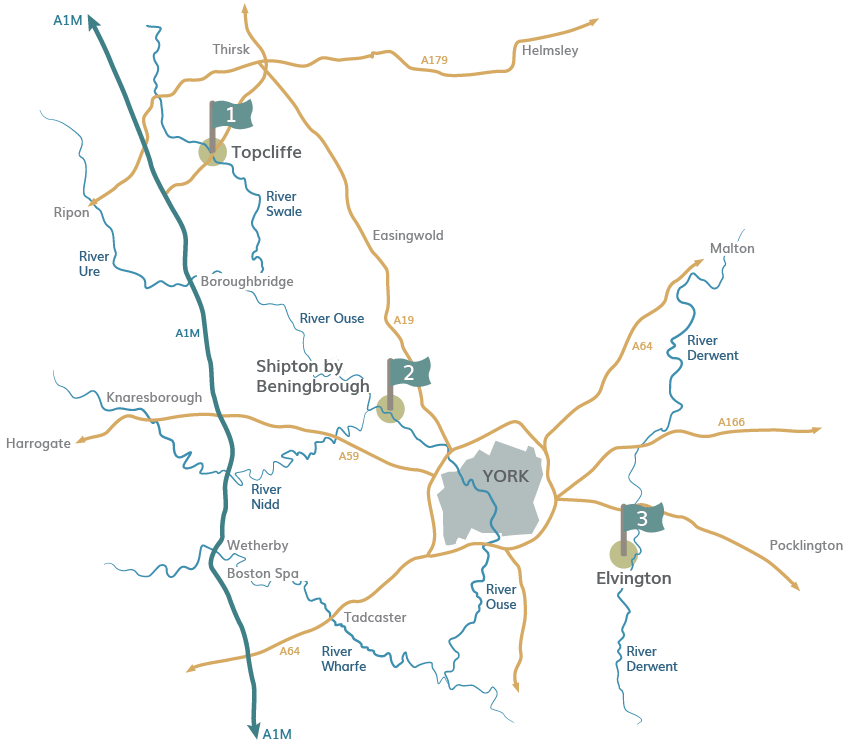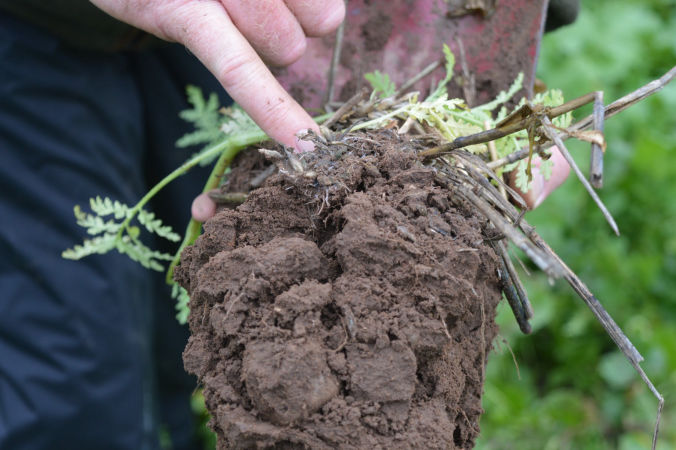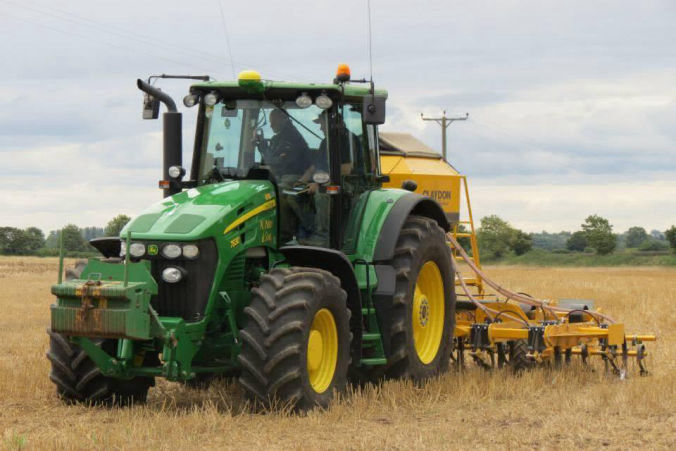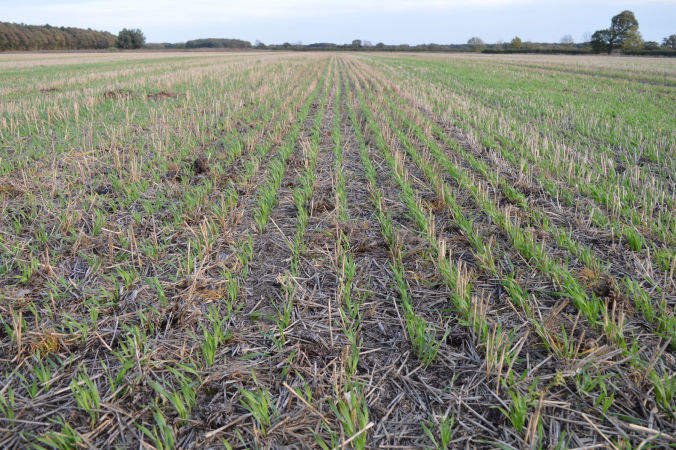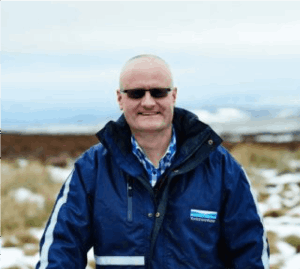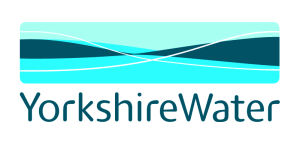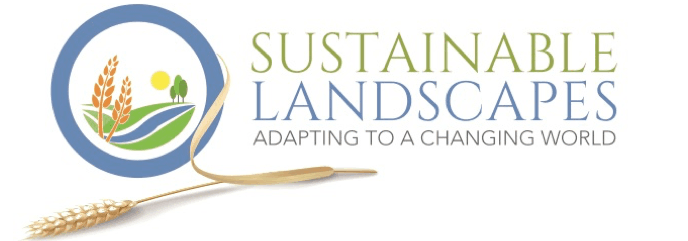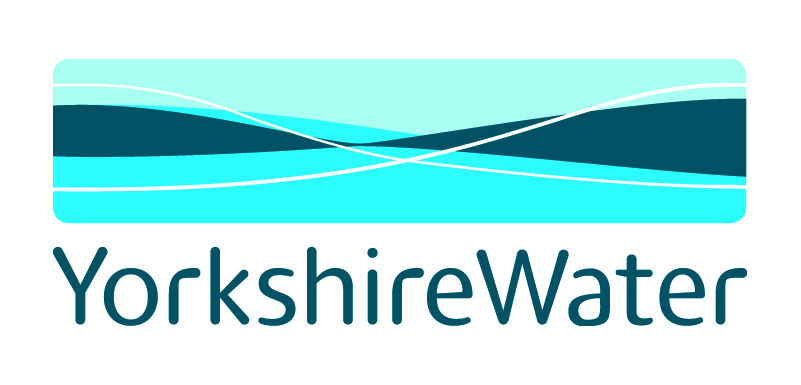Sustainable Landscapes
The Sustainable Landscapes programme, launched in July 2018, brings together groups of forward-thinking arable farmers to explore sustainable farming practices that will positively benefit soil health and ultimately improve water quality in specific river catchments. Working in close association with Yorkshire Water, three pilot study areas were selected to demonstrate how well changes in soil management could improve major issues surrounding water quality. The three study areas provide a unique platform for demonstrating and developing practical methods of regenerating soil. Lead by innovative, progressive, dedicated farmers, these pilot areas are championing techniques designed to safeguard water quality, farm productivity and environmental values.
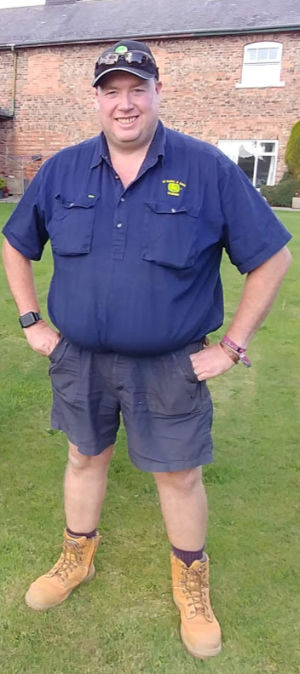
Graham Potter farms 500 acres at Topcliffe near Thirsk. He grows wheat, barley, oilseed rape and a small amount of fodder beet. Graham is a huge enthusiast of precision farming techniques and has embraced much of the very latest technology enabling him to farm efficiently and profitably, whilst at the same time reducing his impact on the environment. He has also been intrumental in pioneering cover cropping and establishment technques.
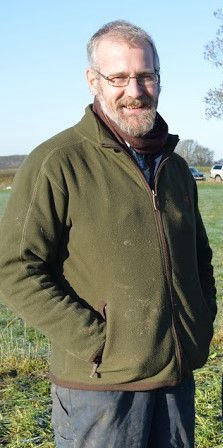
Dave Blacker farms around 890ha on a mix of family-owned, rented and stubble to stubble contracts based at Shipton By Beningbrough, just north of York. His current rotation is wheat, oilseed rape, wheat and spring beans. David grows feed wheat, chops all his straw and is using cover crops to improve soil structure and add organic matter to fields before spring beans. David is particularly interested in precision farming and improving his soils organic matter and structure.
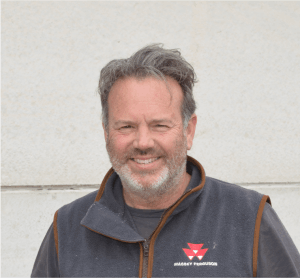
Richard farms 230 hectares of winter and spring barley, milling wheat, sugar beet, potatoes and peas at Kelfield near York and is also Chair of the NFU Environment Forum. A previous winner of the RSPB Nature of Farming Award (Northern). Attention to the Farmed Environment is also a keen focus; with good recorded results on bio-diversity alongside productive and profitable farming. Alongside his arable operations, Richard is involved in a diverse range of environmental work on his farm, he is also actively engaged with food and farming related university research and education.
